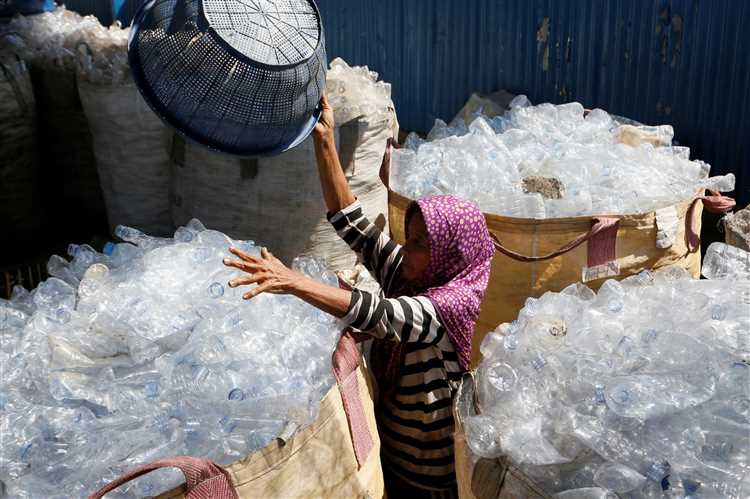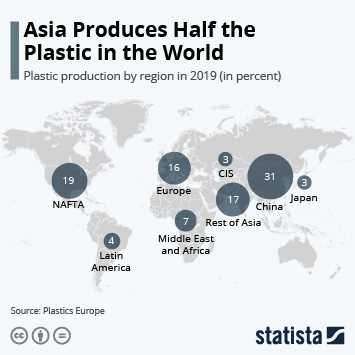In recent years, there has been a growing concern about the environmental impact of plastic bags in Asia. As one of the largest contributors to plastic pollution, the region has been striving to find effective measures to address this problem. Governments and communities have been implementing plastic bag bans in an effort to reduce plastic waste and promote sustainable practices.
Stricter regulations have been introduced in many Asian countries to limit the production, distribution, and use of plastic bags. Some have imposed outright bans on plastic bags, while others have implemented fees or taxes to discourage their use. These measures aim to shift consumer behavior towards more eco-friendly alternatives, such as reusable bags or biodegradable options.
The impact of these plastic bag bans has been significant. Studies have shown a reduction in plastic bag consumption and waste in countries that have implemented the measures. This has resulted in cleaner streets, improved water and air quality, and a positive impact on marine ecosystems. Moreover, the bans have raised awareness about the harmful effects of plastic on the environment, leading to increased discussions and actions towards more sustainable practices.
Despite the progress made, there are challenges and future perspectives to consider. Enforcement of the bans remains a key issue, as some individuals and businesses continue to use and distribute plastic bags illegally. Additionally, the transition to alternative packaging solutions requires investment in infrastructure and education. Governments, businesses, and communities need to collaborate to find innovative and sustainable alternatives to plastic bags, ensuring that these solutions are accessible and affordable for all.
Overall, the plastic bag bans in Asia have been a crucial step towards addressing the problem of plastic pollution. They have sparked a global movement towards greater environmental consciousness and encouraged individuals, businesses, and governments to take responsibility for their actions. Moving forward, continued efforts to enforce and expand these bans, along with ongoing research and innovation, will be vital to achieving a plastic-free future in Asia and beyond.
- Measures Taken to Reduce Plastic Bag Usage
- Environmental Impact of Plastic Bags
- Economic Consequences of Plastic Bag Bans
- Impact on Businesses
- Consumer Behavior
- Market Dynamics
- Question-answer:
- What countries in Asia have implemented a plastic bag ban?
- What measures have these countries taken to enforce the plastic bag ban?
- What is the impact of the plastic bag ban in Asia?
- Are there any challenges or concerns related to the plastic bag ban in Asia?
- What are the future perspectives for the plastic bag ban in Asia?
Measures Taken to Reduce Plastic Bag Usage

Recognizing the detrimental impact of plastic bags on the environment, several countries in Asia have implemented measures to reduce their usage. These measures include:
1. Implementing plastic bag bans: Many countries have introduced complete bans on the use of plastic bags in certain sectors or nationwide. This involves prohibiting the production, sale, and distribution of plastic bags, encouraging consumers to use more environmentally friendly alternatives such as reusable bags.
2. Imposing taxes and levies: Some countries have introduced taxes or levies on the use of plastic bags to discourage their consumption. These financial incentives aim to encourage individuals and businesses to opt for alternative options or to reduce the overall usage of plastic bags.
3. Promoting reusable bags: Governments and organizations across Asia have been actively promoting the use of reusable bags through public awareness campaigns and initiatives. These campaigns educate consumers about the harmful effects of plastic bags and encourage them to switch to reusable alternatives.
4. Encouraging recycling: Recycling programs and initiatives have been established to encourage the proper disposal and recycling of plastic bags. In some countries, recycling facilities and collection points have been set up to ensure the efficient recycling of plastic bags and reduce their negative impact on the environment.
5. Collaborating with businesses: Governments have collaborated with businesses, particularly in the retail sector, to encourage them to reduce their usage of plastic bags. This includes providing incentives for businesses to switch to more sustainable packaging options or to adopt reusable bag policies.
6. Implementing stricter regulations: Governments have implemented stricter regulations on the production and distribution of plastic bags to reduce their overall usage. These regulations include setting limits on the thickness of plastic bags, restricting the use of plastic bags in certain sectors, and ensuring the proper labeling and packaging of plastic bags.
7. Educating and raising awareness: Education and awareness campaigns play a crucial role in reducing plastic bag usage. Governments, NGOs, and other organizations are actively involved in educating the public about the environmental impact of plastic bags and the importance of adopting more sustainable options.
In conclusion, governments in Asia have implemented a range of measures to reduce plastic bag usage. These measures involve implementing bans and taxes, promoting reusable bags, encouraging recycling, collaborating with businesses, implementing stricter regulations, and educating the public. It is hoped that these efforts will lead to a significant reduction in plastic bag consumption and contribute to a more sustainable future.
Environmental Impact of Plastic Bags

Plastic bags have a significant environmental impact, particularly due to their durability and low biodegradability. They are made from petroleum, a non-renewable resource, and their production contributes to greenhouse gas emissions and the depletion of natural resources.
One of the most significant environmental concerns associated with plastic bags is their impact on marine life. When plastic bags are not properly disposed of, they can easily end up in rivers, lakes, and oceans. Marine animals often mistake them for food, leading to ingestion and entanglement, which can result in injury or death.
The presence of plastic bags in the marine environment also poses a threat to the ecosystems. They can smother and suffocate coral reefs and other underwater habitats, interrupting the natural balance and causing long-term damage.
Furthermore, the decomposition process of plastic bags is extremely slow, taking hundreds of years. As a result, they persist in the environment for a long time, polluting landfills and becoming a source of microplastic pollution.
Plastic bags also contribute to the problem of litter, which poses a threat to terrestrial ecosystems. When they are improperly disposed of, they can get blown away by the wind, ending up in forests, parks, and other natural areas. This not only creates an eyesore but also harms wildlife, as they can ingest or become entangled in the bags.
Additionally, the production and disposal of plastic bags require significant energy inputs and contribute to carbon emissions. The manufacturing process involves extracting and refining petroleum, a fossil fuel, which releases greenhouse gases. The disposal process, whether through landfilling or incineration, also contributes to air and water pollution.
Overall, the environmental impact of plastic bags is profound and wide-ranging. It affects marine life, terrestrial ecosystems, and contributes to the depletion of natural resources and increased carbon emissions. Reducing the use of plastic bags and promoting alternative, more sustainable options is crucial to mitigate these environmental effects.
Economic Consequences of Plastic Bag Bans

The implementation of plastic bag bans in Asia has had significant economic consequences. While the primary intent of these bans is to reduce environmental pollution and promote sustainable practices, they also impact various aspects of the economy, including businesses, consumers, and the overall market dynamics.
Impact on Businesses
Plastic bag bans require businesses, particularly retailers, to find alternative packaging materials or promote the use of reusable bags. This transition often incurs additional costs, such as investing in reusable bags or finding alternative packaging options. Small businesses, in particular, may face financial challenges in adapting to these changes.
However, plastic bag bans also present new business opportunities. Companies that produce alternative packaging materials, such as biodegradable or compostable bags, can benefit from the increased demand. Similarly, reusable bag manufacturers may experience a surge in sales as consumers seek eco-friendly alternatives.
Consumer Behavior
Plastic bag bans have a significant impact on consumer behavior. With the unavailability or increased costs of plastic bags, consumers are encouraged to bring their own reusable bags. This leads to a shift in consumer preferences and habits, promoting a culture of sustainability.
Consumers may also alter their shopping patterns as a result of plastic bag bans. They may consolidate their purchases, avoid impulse buying, or opt for products that require less packaging. This change in consumer behavior can influence product demand and market dynamics.
Market Dynamics
Plastic bag bans can disrupt market dynamics by promoting the adoption of alternative packaging materials. Materials such as paper, cloth, or biodegradable bags may see increased demand, leading to changes in supply chains and production processes.
Moreover, plastic bag bans can drive innovation in the packaging industry. Manufacturers may invest in research and development to create sustainable packaging solutions that comply with regulations and consumer preferences. This innovation can result in new business opportunities and job creation in the long run.
However, plastic bag bans can also lead to unintended consequences. Some retailers may pass on the additional costs of alternative packaging materials to consumers, resulting in higher product prices. Additionally, if consumers do not adopt reusable bags or alternative options, demand for plastic bags may simply shift to other types of single-use bags, defeating the purpose of the ban.
- Overall, the economic consequences of plastic bag bans are multifaceted and require careful consideration. While they present challenges for businesses and may create short-term disruptions in the market, they also offer opportunities for innovation and a more sustainable future.
Question-answer:
What countries in Asia have implemented a plastic bag ban?
Several countries in Asia have implemented a plastic bag ban, including China, Taiwan, South Korea, India, Bangladesh, and Myanmar.
What measures have these countries taken to enforce the plastic bag ban?
These countries have implemented various measures to enforce the plastic bag ban, such as imposing fines on businesses and individuals who use or distribute plastic bags, promoting the use of reusable bags, and implementing education campaigns to raise awareness about the negative impact of plastic bags on the environment.
What is the impact of the plastic bag ban in Asia?
The plastic bag ban in Asia has had a positive impact on the environment. It has reduced the use of single-use plastic bags, which has helped to decrease plastic pollution and the amount of plastic waste ending up in landfills and oceans. Additionally, the ban has encouraged the use of reusable bags, which are more environmentally friendly.
Are there any challenges or concerns related to the plastic bag ban in Asia?
Yes, there are some challenges and concerns related to the plastic bag ban in Asia. One concern is the lack of alternative options for consumers, such as affordable reusable bags. Another challenge is the enforcement of the ban, as some businesses and individuals may still use or distribute plastic bags illegally. Additionally, there may be resistance to change and a need for more education and awareness about the benefits of the ban.
What are the future perspectives for the plastic bag ban in Asia?
The future perspectives for the plastic bag ban in Asia are promising. There is a growing awareness about the environmental impact of plastic bags, and more countries are likely to implement similar bans in the future. Additionally, there is a trend towards the development of eco-friendly alternatives to plastic bags, such as biodegradable bags and bags made from sustainable materials. With continued efforts and improvements, the use of plastic bags in Asia can be further reduced.